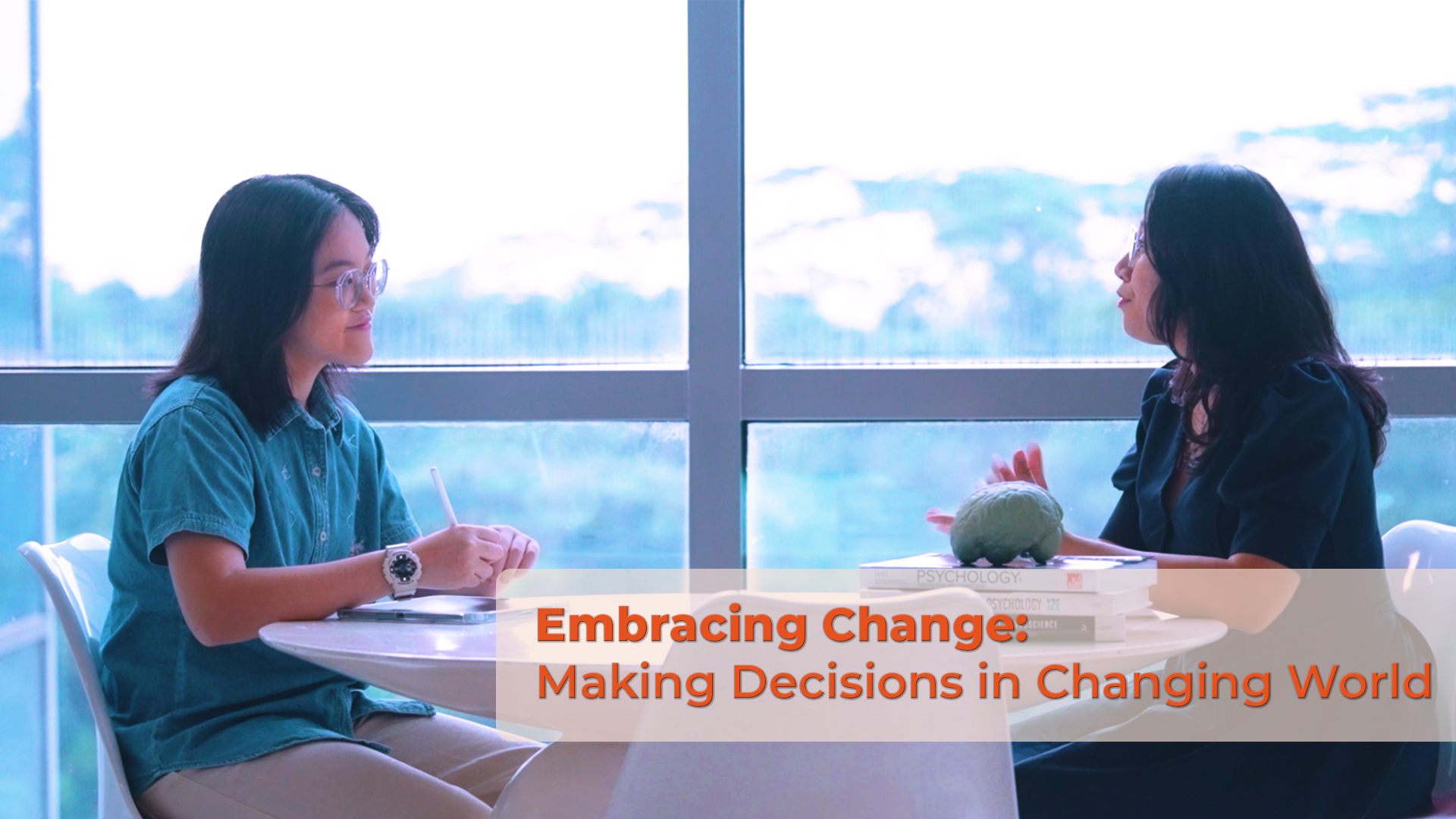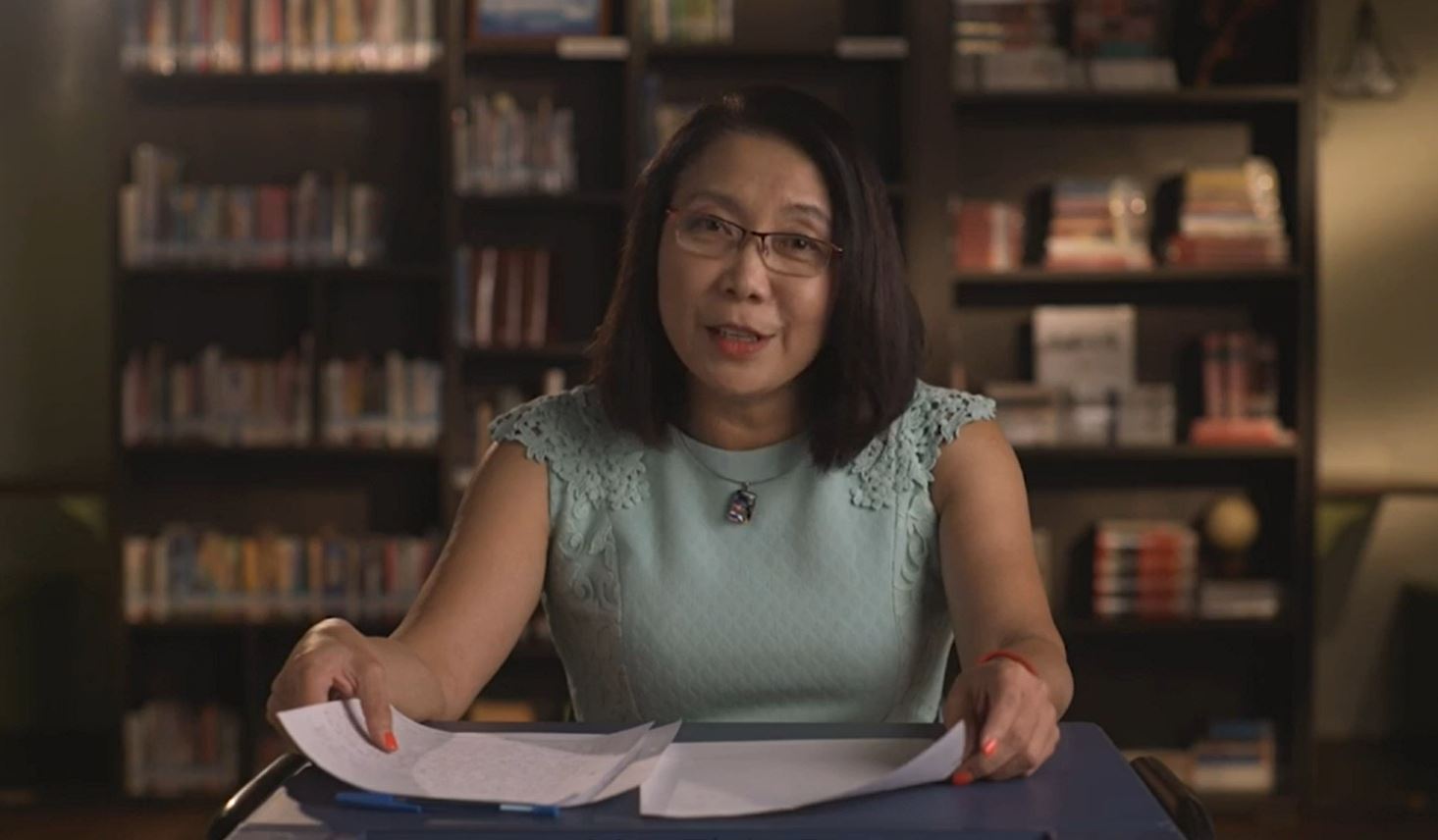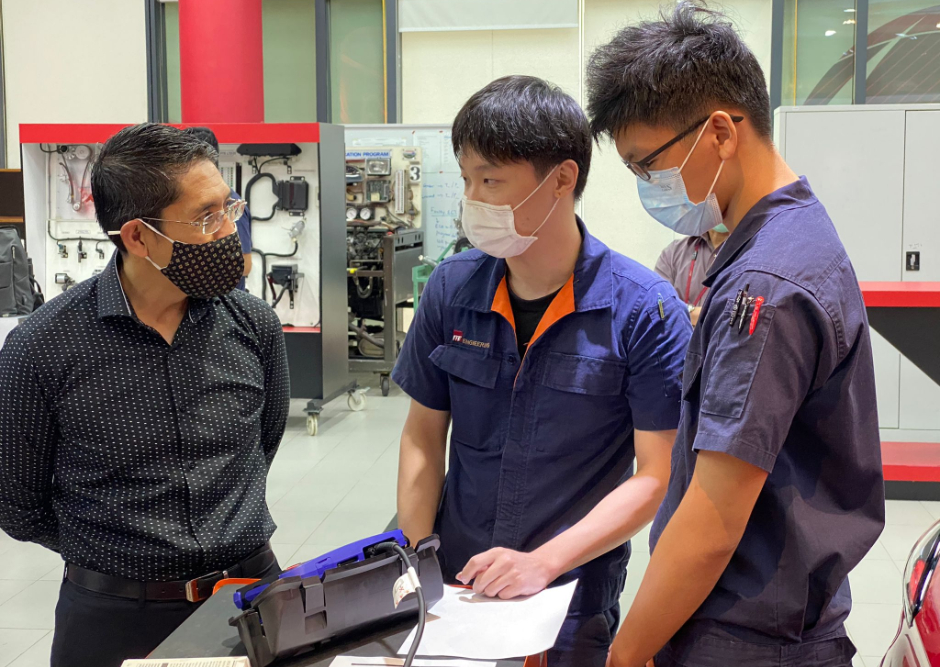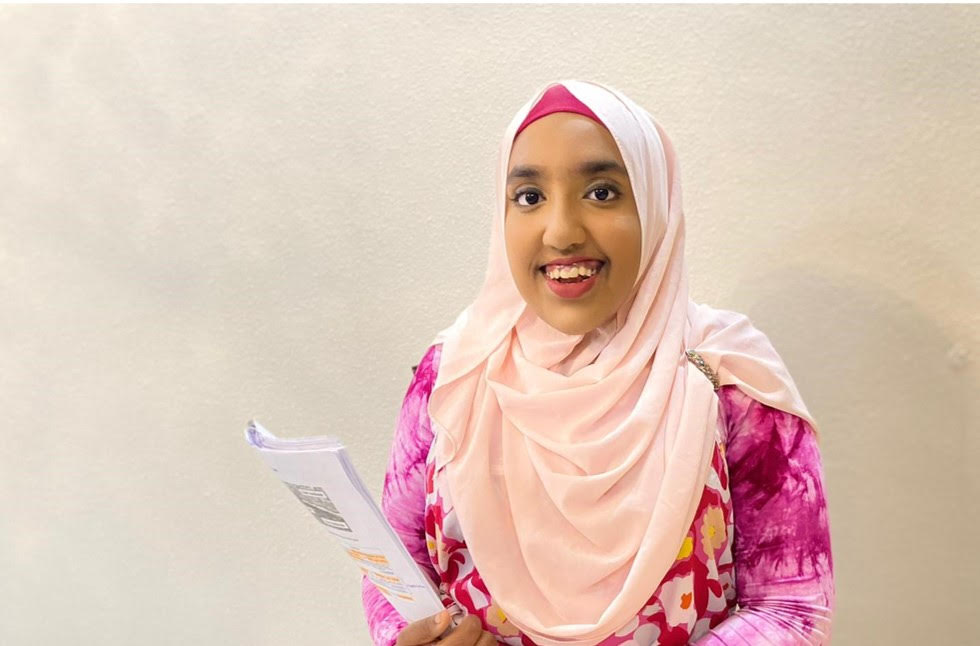| Zesiree Kok, age 15
Sec 3 student at Edgefield Secondary School Doodles on textbooks and dreams of being an illustrator one day |
| Dr Atiqah Azhari, age 29
Psychologist and Neuroscientist, Lecturer, Singapore University of Social Sciences From a hand-drawn business card that said ‘Scientist’ to realising a childhood dream |
In the second of a 3-part series, Zesiree Kok, a Secondary 3 student from Edgefield Secondary, speaks to Dr Atiqah who’s also a lecturer at Singapore University of Social Sciences, about navigating change, choosing careers, and how failures teach you more about yourself.
Making Decisions in a Changing World
Q: What exactly do you do and when did you know this was the path for you?
Atiqah: I’m a psychologist and behavioural neuroscientist by training. As part of my research work, I use portable neuro-imaging devices to record and understand people’s brain activities as they engage in natural tasks in the everyday world.
Back when I was in Primary 2, my form teacher gave us each a blank business card for us to decorate however we wanted. And so on mine, I wrote the word ‘Scientist’. I knew that I wanted to do something that allowed me to discover new things, generate new knowledge; that allowed me to be curious and creative, while also contributing back to society.
Q: How does your research work contribute to society?
I’m starting to collaborate with self-help organisations to look at what are the factors that influence school transition – from preschool to primary school – in children from lower income families. In terms of my more neuroscience-based work, I’m also collaborating with government agencies on how to improve training for their officers and soldiers.
Q: What were some of the most important things you learnt from school?
Throughout primary school, I learnt one important lesson: That learning doesn’t just stop within the classroom. Whatever you’ve learnt can also be applied to your daily life.
Back in Primary 3, I sat for a Science class where we learnt about the different vein patterns and shapes of leaves. As part of that lesson, we had to categorise the different leaves we found around school. And I thought it was simply fascinating.
In fact, after that lesson, I went on to buy a little fern book for myself, so that I could identify different ferns when I go out on my own. And that’s when I realised that learning goes beyond just grades. I took that lesson with me all the way until secondary school.
In secondary school, I learnt about the brain in Biology class. Then I went a step further, did my own reading and started to venture into psychology, reading psychology books on my own. And that was when my love for psychology first started. But it wasn’t until university that I realised I wanted to pursue psychology as a career.
“Learning doesn’t stop within the classroom. Whatever you’ve learnt can be applied to your daily life.”
Q: What were some major changes in life that you’ve had to contend with?
When I was about to turn 13, something good and something really bad happened at around the same window. So, I did well for my PSLE. But also, right after that, my father passed away from illness. So that was a big change for me. Two big changes – transiting to secondary school, while also coping with the loss of my father.
My dad was always the one who inspired the love of learning and pursuit of knowledge in me. He always told me ‘knowledge is power’, since I was a child, you know. And so I realised I wanted to carry on his spirit by discovering new knowledge. And when I publish papers, and my full name is printed there – which includes his name, you know, it feels like we’re coming full circle. I could honour him in that way.
Q: There are so many paths to choose from nowadays. How would I know that I’ve made the right choice?
I think I can relate to the anxiety you’re feeling now. My advice is to really go back to your own definition of success. What is meaningful to you? And what are you good at? To answer these questions, you need to be open to new opportunities, to new experiences. And I know that can sound scary.
When I was in secondary school, my teachers nudged me to join the Young Changemakers Project, which was a year-long project that allowed us to raise funds for a charitable organisation of our choice. My teachers provided space for me to fail and try again. But it came with a lot of challenges.
One of the events was an outdoor performance to raise funds. But it rained very heavily that day. Luckily, my teachers were there to brainstorm alternatives together. So we thought of another event that we could raise funds from. We did something called Lightstick Night, where we sold pink light sticks along Orchard Road. And at the end of the year, we managed to raise $15,000 for Breast Cancer Foundation.
At 15 years of age, I didn’t think I’d be able to manage so many stakeholders, volunteers, source for funding, and lead a team of students from different schools. But through it I could build my self-efficacy, which is a psychological term for a sense of one’s capabilities to execute tasks and behaviours.
I learnt from that experience that when we try new things, sometimes we will fail. But it is good to have people around you to give you the space and support to help you bounce back, improve and remain resilient. That is something I take with me even until today in my job.
Research on a global scale is competitive and moving at a very fast pace. For example, you might think that you’re working on something novel now, but someone else in another lab in another part of the world, might be on it first. So it is important for you to anticipate these kinds of challenges, and remain adaptive.
“My teachers provided space for me to fail and try again.”
Q: Everything is changing so fast. What if what I learn in school is outdated by the time I start working? How do my friends and I keep up?
Well, that’s why you have to keep on learning. Not too long ago, we could only look at people’s brain activities when they’re lying flat in the scanner. Now, with advanced neuro imaging technologies, like portable neuro imaging caps, we can look at brain activities of people in their natural settings. For example, we can even look at yours and my brain activity as we converse with each other. So really, we have to remain proactive, and continue to learn and adapt with the changing times.
Also, talk to people. There is so much that you can learn from each other. For example, you’re interested in illustration. So a friend of yours might also recommend you to programmes or competitions that you can enter, and that you can benefit from. And that is a way for you to help each other out. And remember to pause, to breathe, and recentre yourself. Take breaks along the way.
“Not too long ago, we could only look at people’s brain activities when they’re lying flat in the scanner. Now… we can look at yours and my brain activity as we converse with each other. So, we have to continue to learn and adapt.”
Q: What would you say to 15-year-olds like me who are unsure about our future?
Embrace challenges as opportunities to build your confidence so that when you’re older, you have confidence in yourself to overcome challenges that might come your way.






